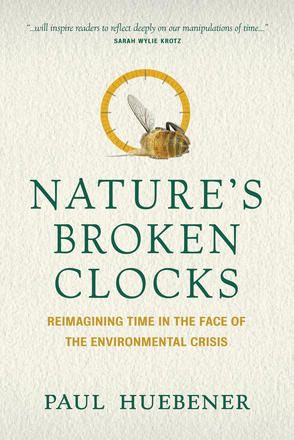In Nature’s Broken Clocks, Paul Huebener analyses works of fiction and poetry, examining how cultural narratives of time are connected to the problems of ecological collapse and what we might do to fix them.

On Monday, June 15th at 16:00 CET, Paul Huebener, Associate Professor of English at Athabasca University (Canada), presented his book Nature’s Broken Clocks: Reimagining Time in the Face of the Environmental Crisis in our Greenhouse online environmental humanities book talk series.
The environmental crisis is, in many ways, a crisis of time. From the distress cries of birds that no longer know when to migrate, to the rapid dying of coral reefs, to the quickening pace of extreme weather events, the patterns and timekeeping of the natural world are falling apart. We have broken nature’s clocks.
Lying hidden at the root of this problem are the cultural narratives that shape our actions and horizons of thought, but as Paul Huebener shows, we can bring about change by developing a critical literacy of time. Moving from circadian rhythms and the revival of ancient frozen bacteria to camping advertisements and the politics of oil pipelines, Nature’s Broken Clocks turns to works of fiction and poetry, examining how cultural narratives of time are connected to the problems of ecological collapse and what we might do to fix them.